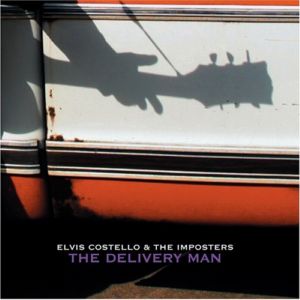
- Format: MP3

Elvis Costello's 21st studio album, The Delivery Man, was intended as a song cycle or a concept album, not that you could ever tell from listening to album. During the prerelease promotion for the album, Costello claimed that he had written a narrative concerning a delivery man in the American South, following him on his journeys and through his relationships with three women of different ages and backgrounds. He also said that he deliberately presented the songs on the album out of narrative order, even taking songs off the record if they revealed too much about either the character or the story. All of this pretty much means that The Delivery Man lacks even a semblance of a narrative, and the only way to know that it's supposed to have one was to read prerelease press or reviews. In other words, the record wound up not as a concept album but as a conceptual album, one that is inspired by the South, in both its music and its imagery, so it's fitting that it's released on the Americana label Lost Highway in Costello's ongoing quest to release an album on every one of Universal's various imprints. While the narrative may have been thrown out the window, that doesn't mean it wasn't needed, since the fledgling concept helped focus Costello even if he didn't follow it through to a complete conclusion. The story of The Delivery Man may have faded away, but working within its framework has inspired Costello to craft his most consistent, unified rock & roll album in many, many years. It's also his best rock record in a long, long time, one that pulls off the nifty trick of being looser, harder than When I Was Cruel while being as sophisticated as North. Make no mistake, this is a composer's record, written with an assured, knowing hand and a deliberate sophistication; it's hard to hear "Country Darkness" without envisioning the written score that gives the tune its gentle lilt. Instead of being an Achilles' heel, this bent toward serious, structured composition is a benefit, revitalizing Costello's writing. On Cruel he sounded labored, as if writing a rock album was a chore, but here he's threaded different musical strands — chiefly country, blues, and soul, but also how he wrote in his '80s heyday; witness how "Either Side of the Same Town" and "Bedlam" are close cousins to Trust — into a style of writing that's more akin with North than any previous rock record. Here, there's an economy to his words and a directness in the basic melodic structure that gives the songs a strong backbone, and help ground his winding eclecticism, which he nevertheless keeps in check by concentrating primarily on Southern musical traditions. But what really makes The Delivery Man work is that it just plain sounds good. It's the first album that he's recorded in its entirety with his road band the Imposters, and they give this music serious muscle, but it also helps that the production by Costello and Dennis Herring stays out of the way — it's simple, direct, and unadorned, letting the performances shine through. The Delivery Man isn't perfect — "The Scarlet Tide" is as mannered here as it was on the Cold Mountain soundtrack, while the very good "There's a Story in Your Voice" is nearly derailed by an unhinged Lucinda Williams — and it never feels as urgent as his prime work, but it's at once his most accomplished and visceral record as a veteran rocker, which is welcome indeed.